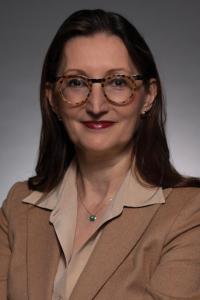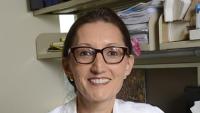State-of-the-Art Research Committed to the Treatment of Multiple Myeloma and Amyloidosis

Multiple Myeloma and Amyloidosis Program at Columbia
Location and Contact Information
Principal Investigator
The Multiple Myeloma and Amyloidosis Program at Columbia (Lentzsch Laboratory) focuses on the identification of novel targets for the treatment of Multiple Myeloma, Multiple Myeloma bone disease, and AL amyloidosis. Our work demonstrated that the translation initiation factor eIF4E level is aberrantly elevated in multiple myeloma cells, and targeting against protein translational machinery represents a novel therapy that inhibits multiple myeloma cell growth and induces myeloma cell apoptosis. Our investigation on the mechanism that activates osteoclasts led to the identification of matrix metalloproteinase 13 (MMP-13) as a critical inducer of osteolysis.
More About Our Research
Our research on the understanding of the pathobiology underlying the mechanisms of immunomodulatory derivatives of thalidomide (IMiDs) in multiple myeloma and their effects on hematopoietic stem cells helped to delineate the risk factors contributing to secondary primary malignancies associated with IMiD treatments.
Furthermore, our innovative research in amyloidosis resulted in a series of translational clinical trials such as establishing new treatments for relapsed AL amyloidosis in a multi-center trial investigating bendamustine. Currently, in a FDA-funded phase 1 trial, we are investigating whether the monoclonal antibody 11-1F4, targeting directly amyloid fibrils, can break down amyloid and subsequently improve organ function in amyloid patients. In addition, we designed and developed bi-specific antibodies, which target well-identified macrophage/neutrophil cell surface markers as well as AL Amyloid, to enhance amyloid elimination.
Columbia Amyloidosis Multidisciplinary Program (CAMP)
Columbia University Irving Medical Center is one of the few medical centers in the country with a multidisciplinary team of doctors, including hematologists, cardiologists, nephrologists, and neurologists, who are experts in the management of amyloidosis. The Columbia Amyloidosis Multidisciplinary Program (CAMP) led by Suzanne Lentzsch, MD, PhD, is recognized as an international and national referral center for amyloidosis. The mission of CAMP is to provide state-of-the-art multidisciplinary care for patients with systemic amyloidosis and perform cutting-edge clinical and translational research to develop novel therapies in this space and also understand the biology of disease. We strive to bring innovative clinical trials that have the potential to change the standard of care for this disease.
The Lentzsch laboratory is actively working on the development of anti-amyloid fibril-reactive monoclonal antibodies for the treatment of AL amyloidosis. We are one of the few centers to have a clinical trial testing BCL2 inhibitor venetoclax in relapsed/refractory AL amyloidosis. We actively maintain a clinical database of patients with systemic AL amyloidosis to answer important clinical questions using real-world data.


